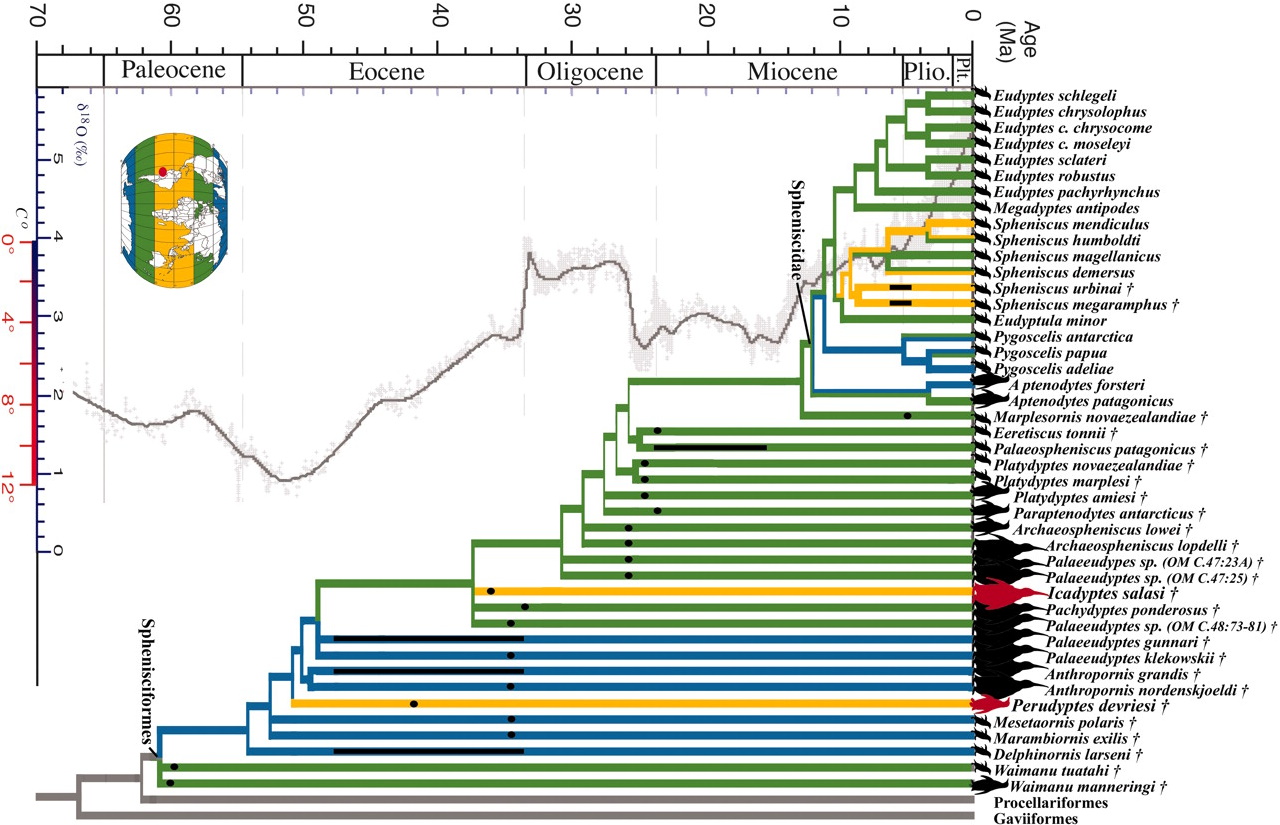For Immediate Release, December 17, 2008
Contact: Brendan Cummings, Center for Biological Diversity, (951) 768-8301
Bush Administration Denies Endangered Species Act Protection for
Emperor Penguin; Ice-Dependent Species Imperiled by Global Warming
Seven Other Penguin Species Proposed for Listing As Threatened
SAN FRANCISCO— The Bush administration today denied protection for the emperor penguin under the Endangered Species Act. The emperor penguin, the most ice-dependant of all penguin species, is threatened by global warming and the consequent loss of its sea-ice habitat, as well as declining food availability wrought by the warming ocean off Antarctica. Today’s decision, made by the Department of the Interior in response to a petition and lawsuit by the Center for Biological Diversity , concluded that global warming impacts were too “uncertain” to warrant protecting the species. The Administration also denied protection for two other penguin species, while proposing protection for seven other species.
“Right now penguins are marching towards extinction due to the impacts of global warming,” said Shaye Wolf, a seabird biologist with the Center for Biological Diversity. “Protecting penguins under the Endangered Species Act is an essential step toward saving them. For the species proposed for listing, today’s decision is an important step forward. However, for the emperor penguin, it is a step closer to extinction.”
In today’s decision, to be published in Thursday’s Federal Register, the African penguin, yellow-eyed penguin, white-flippered penguin, Fiordland crested penguin, Humboldt penguin, and erect-crested penguin were proposed for listing as threatened species. The Administration also proposed listing of a portion of the range of the southern rockhopper penguin. However, the Interior Department denied listing for the majority of the range of the southern rockhopper penguin, as well as for the northern rockhopper penguin, macaroni penguin, and emperor penguin.
Abnormally warm ocean temperatures and diminished sea ice have wreaked havoc on the penguins’ foods supply. Less food has led to population declines in penguin species ranging from the southern rockhopper and Humboldt penguins of the islands off South America, and the African penguin in southern Africa, to the emperor penguin in Antarctica. The ocean conditions causing these declines have been linked by scientists to global warming and are projected to intensify in the coming decades.
Krill, an essential food source not just for penguins but also for whales and seals, has declined by as much as 80 percent since the 1970s over large areas of the Southern Ocean. Scientists have linked the ocean conditions causing these declines to global warming and loss of sea ice. The emperor penguin colony at Pointe Geologie, featured in the film “ March of the Penguins,” has declined by more than 50 percent due to global warming.
Many penguin species also are harmed by industrial fisheries, either directly, such as when individual penguins are caught and killed in trawls, nets and longlines; or indirectly, through the depletion of essential prey species such as anchovy and krill. Overfishing by industrial fishing fleets plays a prominent role in the hit movie “Happy Feet,” which features two of the species denied protection today, the emperor and rockhopper penguins.
Listing under the Endangered Species Act will provide broad protection to these penguins, including a requirement that federal agencies ensure that any action carried out, authorized, or funded by the U.S. government will not “jeopardize the continued existence” of the penguin species. For example, if penguins are listed, future approval of fishing permits for U.S.-flagged vessels operating on the high seas would require analysis and minimization of impacts on the listed penguins. The Act also has an important role to play in reducing greenhouse gas pollution by compelling federal agencies to look at the impact of the emissions generated by their activities on listed species and to adopt solutions to reduce them.
The Center for Biological Diversity filed a petition in November 2006 to list 12 penguin species as threatened or endangered. Ultimately, the Department of Interior initiated status reviews of 10 of 12 penguin species, but only issued today’s findings under court order. The agency has one year to finalize the listing decision for the seven penguins proposed for listing. The decision to deny protection for the emperor, rockhopper and macaroni penguins can be challenged in court.
“Penguin populations are in jeopardy and we can’t afford to further delay protections,” said Brendan Cummings, oceans program director at the Center. “The denial of protection for the emperor penguin ignores the science on global warming and ignores the law. We are confident it will be overturned by either the courts or the new administration.”
For more information on penguins and a link to the federal petition, please see: http://www.biologicaldiversity.org/species/birds/penguins/index.html
The Center for Biological Diversity is a national nonprofit conservation organization with 200,000 members and online activists dedicated to the protection of endangered species and wild places.
# # #
http://www.biologicaldiversity.org/news/press_releases/2008/penguins-12-16-2008.html








No comments:
Post a Comment